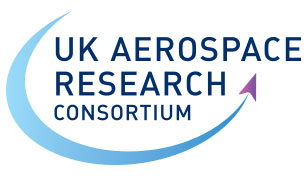The UK Aerospace Research Consortium (UK-ARC) has been created to help organisations identify and engage with the UK’s best aerospace research capability within its leading universities. We connect with the Aerospace Technology Institute, industry and internationally.
By contacting UK-ARC with details of your research needs, whether it’s just to access test and development facilities or acquire specific technical expertise we can quickly put you in touch with the right world leading teams with whom you can discuss your needs.
Accessing research technology excellence
The UK has a growing network of world class UK universities all leading in different areas of aerospace technology research and development and working closely with industry lifting research technology readiness levels (TRLs) towards exploitation.
UK-ARC is able to help you engage with the UK’s leading aerospace research universities
The UK Aerospace Research (UK-ARC) consortium partners include University of Bristol; University of Cambridge; Cranfield University; Imperial College of Science, Technology and Medicine; University of Manchester; University of Nottingham; Queen’s University Belfast; University of Sheffield; University of Southampton; University of Strathclyde and Swansea University.
UK-ARC universities host world-class facilities and capabilities across the TRL range and educate the next generation of aerospace engineers and aviation experts. Collectively, these universities are a formative influence upon the development of aerospace in the UK, supporting its £34Bn earnings value to the economy and its direct and indirect employment of almost 300 people.
UK-ARC works to align research agendas with industry and to support the development of collaborative research projects. It also facilitates international research exchanges and collaborations.


The 3rd annual workshop on Power Electronics for Aerospace Applications
The 3rd annual workshop on Power Electronics for Aerospace Applications will be held at the University of Strathclyde, Glasgow, on 23rd-24th July 2025. Organised by the Technical Committee on Aero space Power (TC11) of the IEEE Power Electronics Society (PELS), this workshop will provide a forum for aerospace power systems and power electronics engineers, and strategy makers […]
BEST (BioEffective Surfaces for Transport) network
UK-ARC is pleased to support the which has just issued its first newsletter which you can read here https://mailchi.mp/f5b39d19f63f/best-network-newsletter . One of the first activities of the UK-ARC was to provide a review of bio-safe flight research expertise within academia to the ADS (Aerospace Defence and Security) trade body when the sector was seeking to address […]
IEEE IAS CMD Event at The University of Manchester
As part of a visit from IEEE IAS past president, The University of Manchester is hosting an event with a theme on transportation electrification targeting young professionals. For more information and registration, use this LINK Advancing the Future: Transportation Electrification 8th and 9th May 2025 Students and Young Professionals National Graphene Institute, The University of Manchester, Booth Street […]
NMIS joins space race with unveiling of second-stage vehicle demonstrator
A new demonstrator vehicle showcasing cutting-edge design and manufacturing innovation for space will be unveiled by the National Manufacturing Institute Scotland (NMIS) as part of Space-Comm Expo – the UK’s largest space industry event. Designed by the Lightweight Manufacturing Centre (LMC) at NMIS – which is operated by the University of Strathclyde and part of […]
Project shows potential of first national medical drone network for Scotland
Scotland’s first national medical drone network could be a step closer following a pioneering project aiming to revolutionise healthcare logistics. UK-ARC member – The University of Strathclyde is part of a 16 member consortium, and the innovative project builds on years of research developed in the Aerospace Centre of Excellence at the University of Strathclyde. An expert team, […]
The 3rd annual workshop on Power Electronics for Aerospace Applications will be held at the University of Strathclyde.
IEEE PELS Workshop on Power Electronics for Aerospace Applications (PEASA) 23rd and 24th of July 2025 University of Strathclyde, Glasgow. The workshop website is open here, https://peasa25.org/, and provides an early opportunity to offer workshop submissions and to register for participating in the event. Please get in touch with us, PEASA2025conf@strath.ac.uk, if you feel that […]
Scotland and Ireland unlocking Space for shared goals
A conference held at the University of Strathclyde’s Technology & Innovation Centre in February addressed findings from the Ireland-Scotland Joint Bilateral Review, designed to shape future collaboration between the two nations on shared objectives, including the support of structured research collaboration to harness expertise and enhance existing research and innovation networks. A significant milestone at the event […]
Great Western Supercluster of Hydrogen Impact for Future Technologies.
Swansea University and University of Bristol have joined forces with a number of other universities and industry partners in the South West to establish GW-SHIFT, the Great Western Supercluster of Hydrogen Impact for Future Technologies. The establishment of GW-SHIFT aims to develop a hydrogen supercluster for the South of England and South Wales that will […]
University of Nottingham announces new hydrogen propulsion lab
The University of Nottingham has received planning permission to construct a new hydrogen propulsion lab on its Jubilee Campus, in partnership with Research England and industry partners. Once operational, this will be accessible for other academic institutions and industry who partner with UoN on R&D activity. Funded by round seven of Research England’s flagship UK Research […]